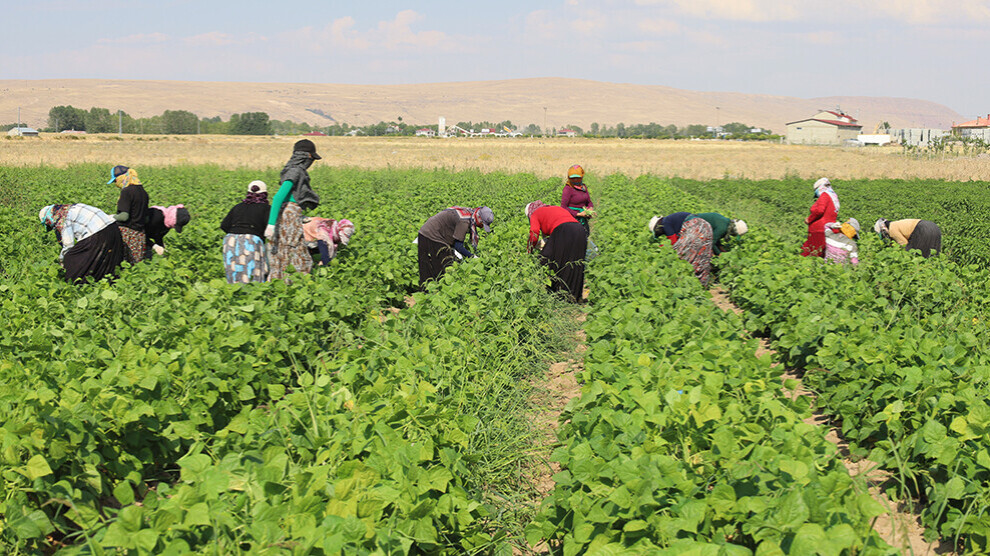Large-scale agricultural production in Turkey and North Kurdistan is based on brutal exploitation, which particularly affects women, who do not even receive 16 euros for twelve-hour days in sweltering heat.
Cherries, hazelnuts and olive oil as well as many other agricultural products from Turkey or North Kurdistan and the occupied areas in Northern and Eastern Syria are on the shelves of German supermarkets.
While agriculture in the occupied areas in Northern and Eastern Syria is based on colonial plunder by the Turkish occupation and its mercenary groups, large-scale agriculture in Turkey and North Kurdistan is also based on brutal exploitation. Women in particular work as seasonal workers to keep their families afloat.

According to research by the Mezopotamya (MA) news agency, women in Gevaş (Westan) in the province of Van (Wan) receive just 600 TL per day (just under 16 euros) for a twelve-hour workday in temperatures over 35 degrees. They work without any protection from 6 a.m. to 6 p.m.
In addition, women are even denied payment of this starvation wage, while food prices in Turkey and North Kurdistan have reached European levels. The women say that the wages are not even enough to cover their basic needs. Due to the living conditions in North Kurdistan, women are forced to work in the fields and plantations of large landowners.
“Prices are rising every day”
Komru Komi, one of the workers, told MA: “We are a family of seven. I work with my husband. All my children go to school, and we have a lot of expenses. I have to work to pay for stationery and clothes. We start working at 6:00 in the morning and leave at 6:00 in the evening. The daily wage we get is 600 TL, which is not enough for anything. Every day, prices are increasing. There is no other work in Van. People are migrating. We want factories and textile workshops to be opened so that our young people do not have to migrate. We want our young people to be able to stay on their own land.”

“We have no choice”
Belkiza Tiniç works twelve hours a day to support her family. She underlined that it is almost impossible to make ends meet, but that she has no other choice: “My husband works in construction and his wages are not enough to keep the family going. There are no job opportunities in Van. We try to make a living with what we get here. My husband doesn’t want me to work like that, but we have no choice. How can we make a living with the money he earns on the construction site? Our whole struggle is to bring something home.”
“We can’t even buy two kilos of meat”

Another woman who works in the fields to pay her children’s school fees but did not want to give her name said: “I have to work to send my children to school. The wages are far too low for the work we do, but we can’t do anything. The state of the economy is under everybody’s eyes, and you can’t buy anything anymore. None of us can buy what we would like. If we go to the butcher with the money we get, we can’t even buy two kilos of meat.”

